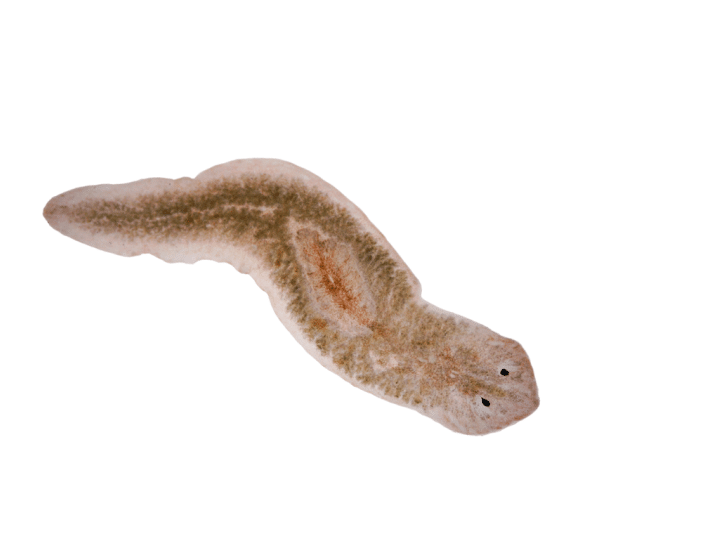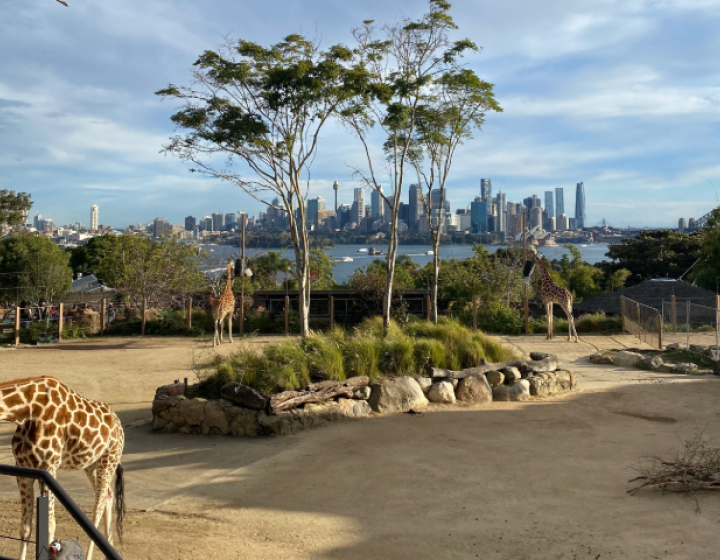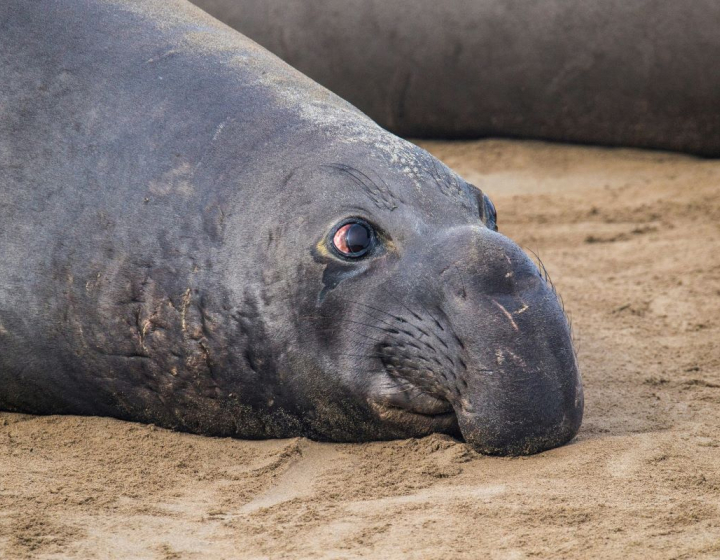Students in the field: Vulture conservation in South Africa
My love of raptors started in Cornell’s Raptor Program during undergrad. From tiny kestrels to huge eagles, the joy I found with working with birds of prey helped spark an interest in wildlife medicine as I started veterinary school. During these past three years, I have been fortunate to work at the Janet L. Swanson Wildlife Hospital and participate in programs like Engaged Cornell. Now, this past March and April 2023, I was able to continue working with wildlife abroad through Cornell University College of Veterinary Medicine's Expanding Horizons International Education Program.
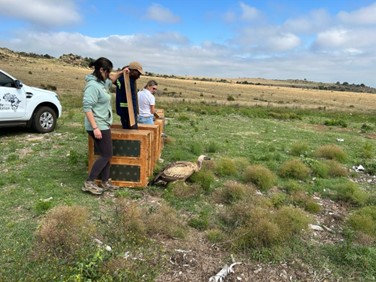
With the help of Dr. Martin Gilbert, Cornell Wildlife Health Center wild carnivore health specialist, I contacted a few of his colleagues and was able to create a proposal with VulPro, and organization that focuses on vulture conservation in South Africa. VulPro’s main efforts include rehabilitation, population monitoring, and captive breeding of vultures and other birds of prey species, as well as education of the community. While other non-releasable vultures, such as hooded, lappet-faced, and white-headed vultures, are all kept at the facility, the main species that the organization works with at the endangered cape vulture and the critically endangered white-backed vulture. Vultures have a unique role in the ecosystem of clearing the environment of deteriorating carcasses, helping curb the spread of dangerous diseases and bacteria while also recycling nutrients back into the environment. Once widespread, vulture numbers have plummeted with declines in several populations of African vultures reduced by up to 95% over the last few decades, mainly due to human activities. Major threats include power-line electrocutions, intentional and unintentional poisonings, land-use changes, and a decrease in food availability. Additionally, there are many superstitious beliefs about vultures and an increasing demand for vulture parts because they are believed to be good luck charms.
Due to these massive declines, the need for captive breeding and release programs in Africa is immense; however, VulPro is one of only two breeding facilities on the African continent committed to releasing offspring to the wild. VulPro continually tries to improve protocols to increase efficiency and success, as well as shares their knowledge and experience with other avian-focused organizations. This is a critical conservation tool for these threatened species and they strive to ensure that their captive breeding program is working optimally, producing as many healthy, successful chicks as possible. VulPro efforts have documented a 75% survival rate from their released rehabilitated vultures, with many successes from their captive bred released vultures. My project with VulPro was to be mostly experiential, focusing on clinical and husbandry aspects of managing the large colonies, with a few minor research projects.
Keep calm and carri-on: Caring for vultures
Even on my first day at VulPro, I was amazed at what I saw before me — the large facility boasted almost three hundred birds between their individuals in rehab for their injuries or non-releasable birds that became part of their captive breeding program. During my time at VulPro, I quickly fell into step with what the daily routines brought us and was fascinated by every aspect of the facility. I helped the husbandry staff care for the animals by feeding them, changing water pools, and providing nesting material. As it was nearing the start of the breeding season, I was also tasked with monitoring a few of the enclosures to see if any new mating pairs were forming, where each pair had decided to nest, and if any eggs were laid. For the medical side, I helped triage all of the incoming patients, managed their initial care in ICU along with the director and veterinarian, and assisted with anesthesia monitoring during the procedures. To round out the experience, I helped with some small research projects including analyzing telemetry data from a pair of previously-released captive bred birds to assess if they were breeding in the wild and performing white blood cell differentials and assessing the smears for any hemoparasites to monitor the health of the birds.
Throughout this entire experience, I was reminded that teaching and learning comes in many forms. Although I think of a lecture as the standard method of learning, being in the field is a great reminder that learning can happen anywhere, even in just five minutes! Out here, where the pressures of academics seemed distant, I felt as though I had more energy to absorb every sight and sound around me. I learned a lot just by doing behavior monitoring of the birds, flipping through education materials, and especially from conversations with the staff during our long car rides to rescues and releases for the birds. The best part was helping with tours and education programs and learning about the animals along with the public.
Community and connection
VulPro is an incredible organization that works toward a better future for vultures on multiple levels, from treating individual birds through rehab to release, to educating the communities and working with power-line companies to have bird-friendly power lines. However, the real secret to VulPro’s success is the dedicated staff who work tirelessly to ensure that the birds in their care are thriving both physically and mentally. I had the pleasure of learning from every one of these incredible people as we laughed and told stories while prepping meals for the vultures or making sure overly-curious birds like PJ didn’t steal our phones when we weren’t looking. Although I was initially
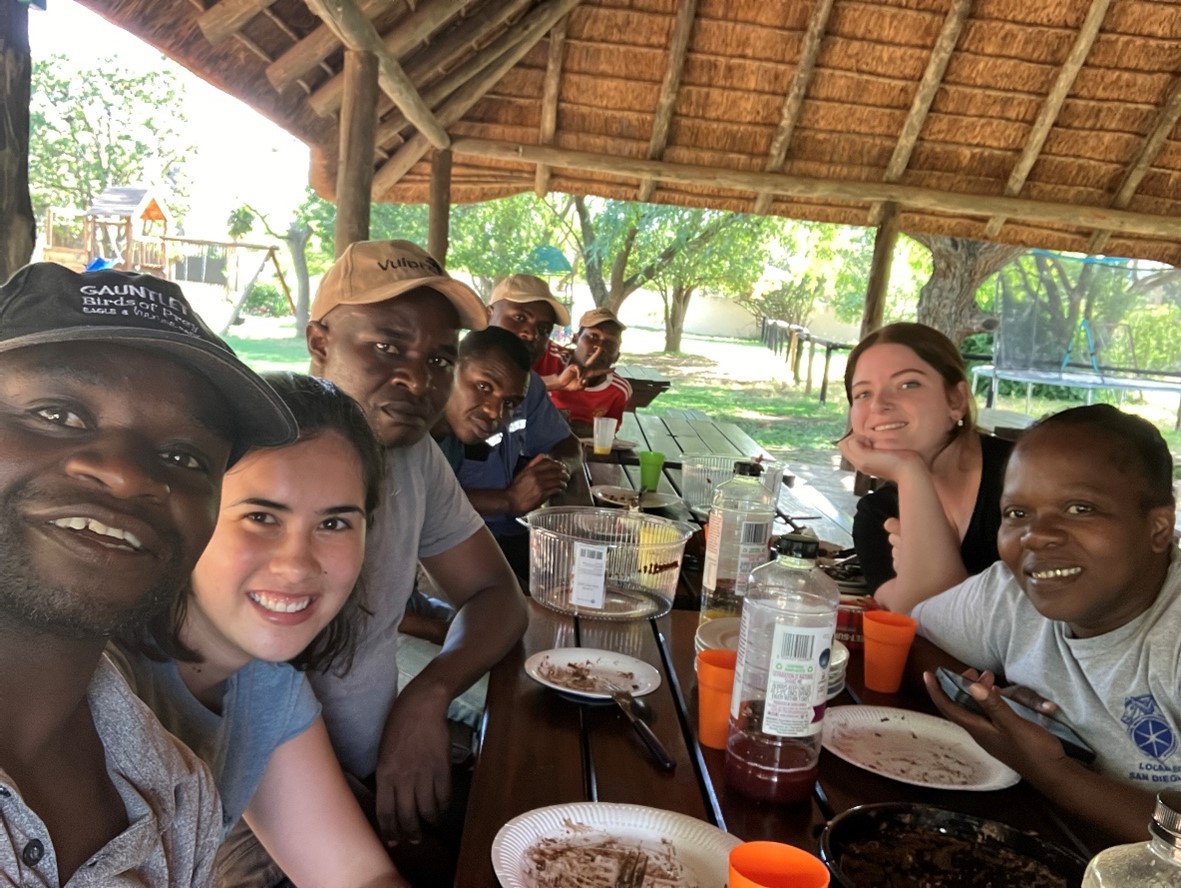
nervous being in a new country where the vast majority of the population did not look like me, the staff welcomed me wholeheartedly, cooking for me so that I could try traditional dishes, and even taking me on trips so that I could explore the area. Every day, I felt like they were not only teaching me about the birds, but they were teaching me about how to grow as a person. So many of the friends I made shared stories about traveling to South Africa to find work to support their families. And even with the challenge of working so far from their support system, they managed to find community amongst themselves and accept me into their group. Every day, their smiles sparked wonder in my heart and lifted me up even through the most emotionally challenging cases. And even as I remember all the unforgettable moments with my new friends, I am smiling through tears of joy as I think about how lucky I am. I am grateful for not only the clinical skills I gained, but for my strengthened passion for wildlife medicine abroad, and especially for the lifelong friendships I have made.
Christel-Remy Kuck, D.V.M. ’24, is a fourth-year veterinary student at the Cornell University College of Veterinary Medicine. She graduated from Cornell University with a B.S. in Animal Science and a minor in Education in 2020. Her interests include wildlife (particularly avian) conservation and One Health medicine, and after graduation, she hopes to practice clinically and eventually move into academia.



